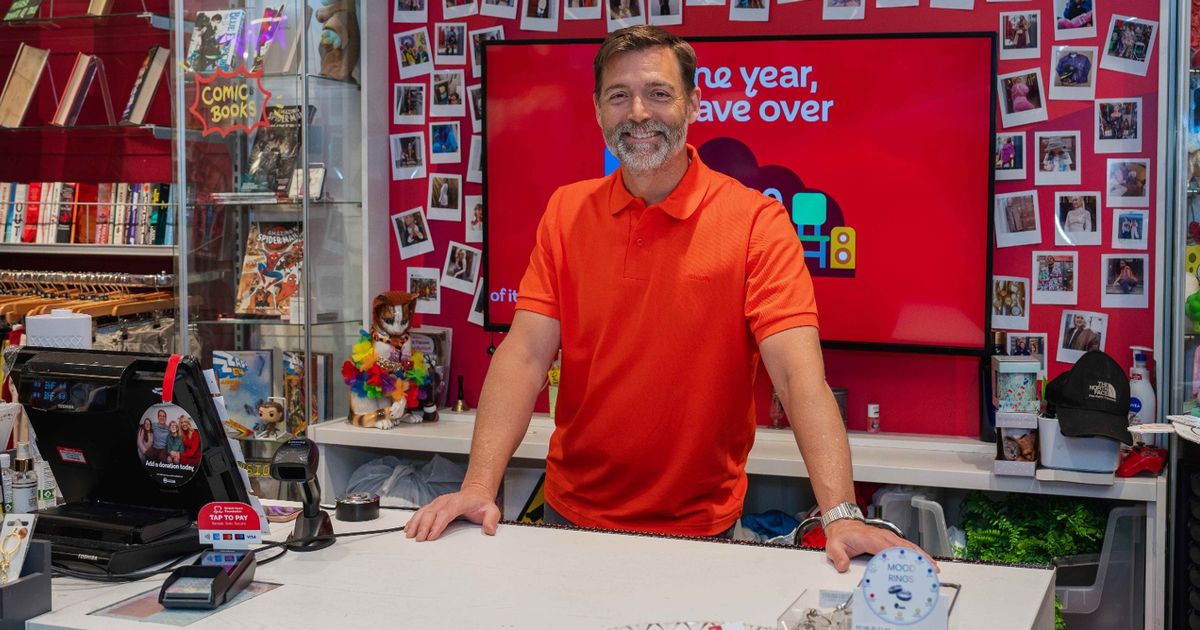The Great British Sewing Bee judge Patrick Grant tells the Manchester Evening News why he’s sent a huge collection of jeans, dresses and chinos to two charity shops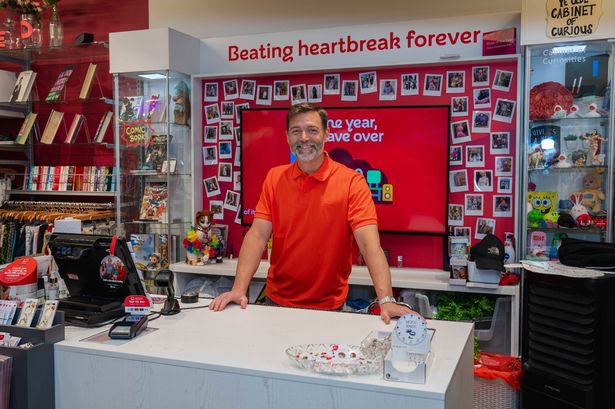 The Great British Sewing Bee judge Patrick Grant has donated more than 450 items to two British Heart Foundation charity shops in Manchester(Image: British Heart Foundation)
The Great British Sewing Bee judge Patrick Grant has donated more than 450 items to two British Heart Foundation charity shops in Manchester(Image: British Heart Foundation)
More than 400 items of surplus clothing from a top fashion brand fronted by a Great British Sewing Bee judge will be heading to two Manchester charity shops this weekend.
Patrick Grant’s Community Clothing company, which makes outfits using ethically-sourced materials in British mills, has partnered with the British Heart Foundation to donate its surplus stock to two charity shops.
The collection of around 450 items, which will include jumpers, jeans, dresses, shirts and chinos, will be available to buy from the Manchester Piccadilly and Chorlton BHF stores from Saturday (June 14).
Patrick, who has judged the popular BBC sewing competition since its inception in 2013, has run Community Clothing since 2016. He said the decision to choose the two Manchester stores was due to their prominent location close to the Blackburn mill that is used in making the clothes.
“It’s really nice that quite a lot of these products will have been made within an hour’s drive of central Manchester,” Patrick tells the Manchester Evening News. “Everything we’ve donated is all great stuff – it’s just things that might have been discontinued, or styles we’ve ultimately opted not to go with anymore.”
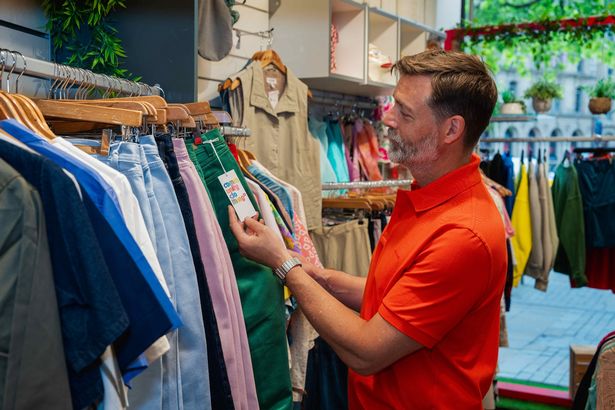 Around 450 items have been donated to the Chorlton and Piccadilly Gardens stores(Image: British Heart Foundation)
Around 450 items have been donated to the Chorlton and Piccadilly Gardens stores(Image: British Heart Foundation)
Patrick said donating these surplus items – which have remained in storage over a period of time – is a first for Community Clothing. In fact, the clothing company never even puts its items on sale.
“We don’t do sales,” he explains. “The closest thing we have is an Odds and Ends section, which is for the last of our discontinued products but they are still at their original price.
“When it comes to these surplus items, we’re letting the charity shops price up everything themselves. It’s up to them how much it will go for.”
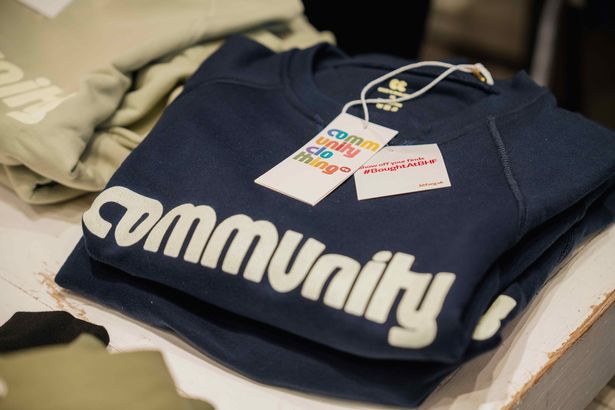 Community Clothing was set up to make ‘fantastic quality’ clothes whilst championing the UK’s textile manufacturing industry(Image: British Heart Foundation)
Community Clothing was set up to make ‘fantastic quality’ clothes whilst championing the UK’s textile manufacturing industry(Image: British Heart Foundation)
The Scottish clothier explained that he set Community Clothing up in a bid to make ‘fantastic quality’ clothes whilst championing the UK’s textile manufacturing industry. It works with more than 40 mills across the country.
Its lines are focused on ‘the clothing you need with no extraneous details’, which means they are often timeless and can be worn throughout the year. Patrick says, quite importantly, that they are also made to last – unlike fast fashion.
With the boom of fast fashion, he says that the quality of items being donated to charity shops across the country has dipped as a result. “It’s really hard to sell second-hand fast fashion clothes,” he says.
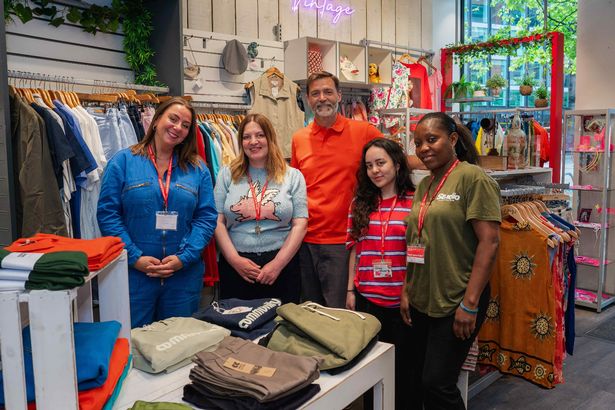 Patrick with volunteers at the British Heart Foundation charity shop in Manchester(Image: British Heart Foundation)
Patrick with volunteers at the British Heart Foundation charity shop in Manchester(Image: British Heart Foundation)
“There’s just a tidal wave of this stuff, and chances are that they’re probably already on their last legs by the time they arrive at the charity shops, as well. In fact, they’re rarely well designed at all. They are churned out by AI, they are mass-produced for a mass audience.
“There’s very little physical design and developmental work done when making fast-fashion, to be honest with you. I read some research that there is now something like 100 million pieces of Zara clothes on Vinted. That’s just one brand on one platform.”
So, with that in mind, Patrick believes that Community Clothing’s mission aligns perfectly with British Heart Foundation – and he can’t wait to see how much money is raised for the charity with their hundreds of surplus items.
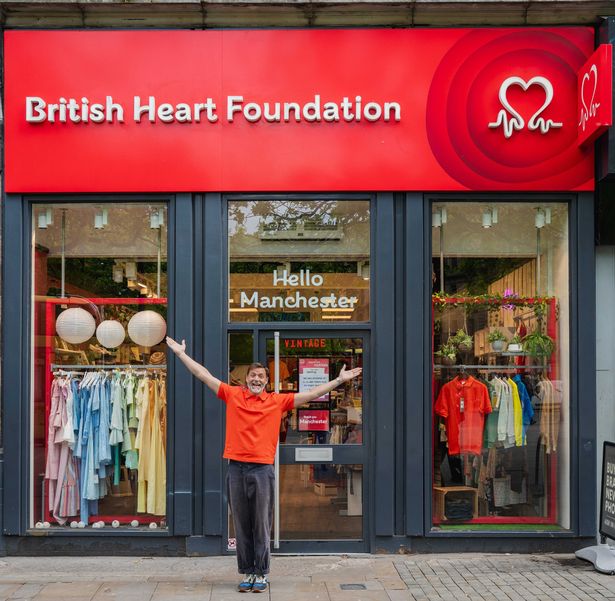 The Manchester Piccadilly store will be selling some of the Community Clothing’s surplus items this weekend(Image: British Heart Foundation)
The Manchester Piccadilly store will be selling some of the Community Clothing’s surplus items this weekend(Image: British Heart Foundation)
“We are all about creating prosperity in towns and cities where the textile industry once employed a lot of people,” he says. “We’re trying to rebuild that economic prosperity by selling good clothes at a good price. It’s a simple formula.
“But part of that is working with the communities we sit in and doing all sorts of things to engage with them. Charity shops are vital services and benefit so many people.
“And I also feel like charity shops need our support now more than ever. My granny used to volunteer at a charity shop in the late 70s and early 80s and she always spoke about the great camaraderie and community spirit there. There are some really far-reaching benefits of charity shops, besides supporting important organisations and providing people with items they might not be able to get normally.”
